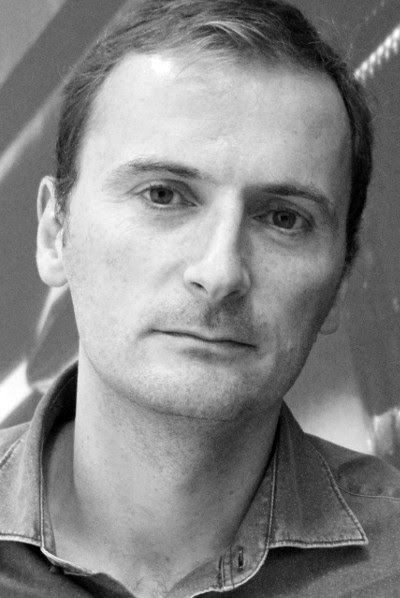 Quantum Mechanics is the nightmare of science communicators. The apparent obscurity of its rules and the unintuitive nature of many of its results often lead to articles where the words “spooky”, “multiverse” or “conscience” substitute for simpler, less mystical explanations that emphasize the utilitarian aspects of this theory. Antonio Acín, leader of a big research group at the Institute of Photonics (ICFO) in Catalonia, works both on Quantum Information Theory, a field of Physics that cares both about the theory behind quantum mechanical systems and their application to tasks in information processing, computation or even materials design. He is also a good communicator who, through many popular talks and writings, helps a wider audience understand those unintuitive aspects of Quantum Mechanics that, one day, could have a practical implication in their lives. One of Antonio Acin’s research interests is Quantum Cryptography or, more precisely, Quantum Key Distribution, a process by which two parties, Alice and Bob, create and share a secret string of bits with which they can encode messages and communicate securely. There are many methods to do QKD, one of which is to share an entangled state of two physical systems, one of which is sent to Alice and the other one to Bob. Because of entanglement, when both Alice and Bob measure their physical systems in the same way, the outcome of those measurements are perfectly correlated: for example, if Alice measures the polarization of the photon and the outcome is “left” or “right”, she can predict the result of Bob’s measurement (typically the opposite one, “right” and “left”). This way they can share a string of measurement outcomes (bits), which is random and can act as a shared secret key to encode messages. A crucial point in this respect is the secret nature of this key: if third parties intercept their measurements, change their state and attempt to influence their measurement outcomes, Alice and Bob can detect it.
At the core of Quantum Key Distribution’s security is the fact that measurement outcomes in Quantum Mechanics are random, and our description of the microscopic nature is probabilistic. Nowadays this randomness is also seen as a resource that can be used for generating better keys that can power encryption and communication mechanisms, not only with quantum algorithms, but also at the classical level, engineering random number generators that are used by ordinary computers and classical devices.
You have both an education as a physicists and as an engineer. When and how did you get interested in Quantum Information? In 1997, after getting my two degrees in Physics and Telecommunication Engineering, I knew I wanted to go for a PhD in Physics but I did not know the topic yet. I decided to take the PhD courses and look for an interesting research topic in the meantime. Then, Anna Sanpera and Ignacio Cirac gave a (I think two-week) course on quantum information theory at the Faculty of Physics of the University of Barcelona and I immediately understood that I had found the topic I was looking for. Quantum Cryptography has always seemed the most viable commercial application of Quantum Information in the short term. How do you view the field or what is missing for this?
From a scientific point of view, the device-independent approach has opened many new promising perspectives in quantum cryptography, and also new theoretical and experimental challenges. From a commercialisation point of view, quantum cryptography has still to find its place, I guess. However, the Snowden affair has proven that it may be risky to base the security of critical applications on just one approach and it is better to combine many of them (for instance by combining keys generated by different protocols). It is plausible that quantum solutions become one of these cryptographic protocols used to encrypt messages. Your work on QKD has always had a leg on foundational aspects of Quantum Mechanics. More recently you have worked on “device-independent” protocols to assert the security of QKD devices. Roughly, it seems that one would design an apparatus for QKD assuming that Quantum Mechanics works and then try to verify that it is secure even if Quantum Mechanics were wrong. Is this right? What are the current implications of this idea? Yes, I like the device-independent approach because it allows me to study very fundamental questions and, at the same time, think of information protocols to solve relevant problems, such as secure encryption. While it is possible that the device-indepedent approach may allow us to design protocols that remain secure even if quantum physics was proven to be wrong, this is not my main motivation to study these protocols. Some years ago, there were some successful hacking attacks on quantum cryptography protocols. What the hackers exploited is that the real devices used in the implementation did not work as assumed in the theoretical security proof. This opened a security loophole, which was exploited by the quantum hackers. In the device-independent approach, protocols are defined without any modelling of the devices used in the implementation. Thus, there cannot be any mismatch between what the theoretical security proof demands and what happens in the implementation, as the devices can just be seen as a black box. This device-independent property makes the resulting protocols robust against the existing having attacks. In my view, device-indenpendent protocols define the right avenue for quantum cryptography. Do you believe in post-quantum theories or do you feel comfortable with the state-of-the-art and how we work with it? I don’t believe that quantum theory is the final theory, but my experience says that it is very difficult to conceive a reasonable theory beyond quantum physics. Most of my work is on standard quantum physics, but I’m also interested in thinking about how a theory beyond quantum could look like. In fact, I have a recently awarded FQXI project with Miguel Navascués, from the University of Bilkent, whose main goal is to explore some possibilities in this direction. Your favourite interpretation of Quantum Mechanics? I don’t have any favourite interpretation, sorry. I guess it is due to my Engineering education… And how does “randomness” enter the picture? Quantum measurements are supposed to be random but… can we really prove it? It is impossible to prove randomness from scratch, you always need some assumptions. But in quantum physics, under some mild assumptions, such as the impossibility of faster than light communication, yes, you can certify that a device is random, in the sense that its outcomes are unpredictable. It is hard to digest, I agree, but it is a mathematical fact. Quantum random number generators: a viable commercial technology? Difficult to say at the moment. But I think the advantages of using quantum resources are clear, so I’m in principle optimistic. The issue of randomness also has deep scientific and philosophical implications. This year you organized a conference in Barcelona, Quantum Randomness with a strong interdsiplinary orientation and over 100 participants. Can you briefly comment on the outcome of the conference or its implications for the future? The idea was to provide a space for interaction for some of the different communities interested in randomness: mathematicians, physicists, engineers and philosophers. The outcome was very positive, and I also got very good feedback from some of the participants. What about Quantum Engineering? Do you see this also as a viable concept in the near future? I’m fully convinced that engineers will have to face quantum limits and they will control them. I don’t see any fundamental limitation and to me it seems a natural evolution of the field. In the mean time, and after supervising 12 thesis, what would be your advice for students that want to initiate themselves into this field? Is Quantum Information still an emergent field or have all the easy questions been already answered? My advise is that, while Quantum Information may not be an emergent field as some years ago and most of the easy questions have been solved, it is still a nice field for a PhD work that cover many different aspects of science: from very abstract questions to experiments. You are a strong advocate of scientific outreach, with over 11 talks and four popular science articles. Is the society sufficiently aware of progress in Quantum Information and Technology? Or is the field still too mystified and we need better communicators or a deeper penetration in the media? I think quantum physics in general is slightly mystified. In my outreach activities, I try to convey that while quantum physics is for sure counter-intuitive, it is less “magic” than what is sometimes said. More in general, I believe scientists should make an effort to reach the general public so that they can make part of our results too. You supervise a group with over 20 members, half of which are students. How is the daily life in such groups? My day basically consists of scientific discussions with my group members. But this is one of my favourite activities as a scientist. Is it difficult to sustain such a big theory group in the present academic and scientific system? In Spain, it is extremely difficult. But I’m lucky because I got an ERC grant, and ICFO, my institution, and ICREA strongly support my research effort. I also devote a significant amount of time to write proposals and applications for research funding. Finally, the only question that really matters: Guardiola or Luis Enrique? Time will tell but I’m afraid I will see no team playing as the Barça of Guardiola. |
